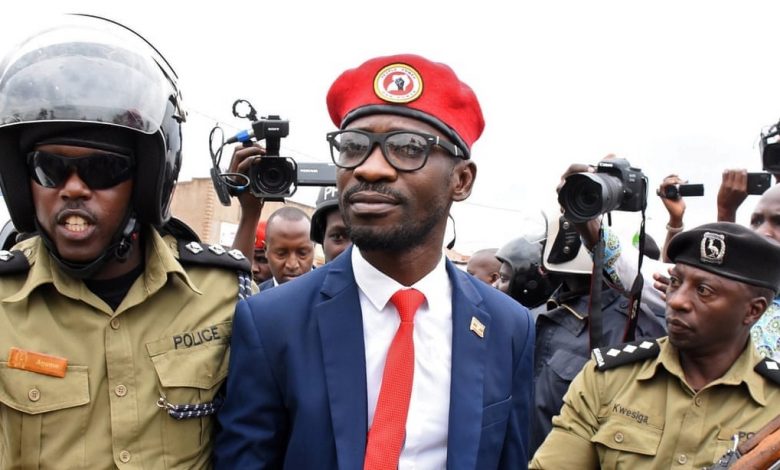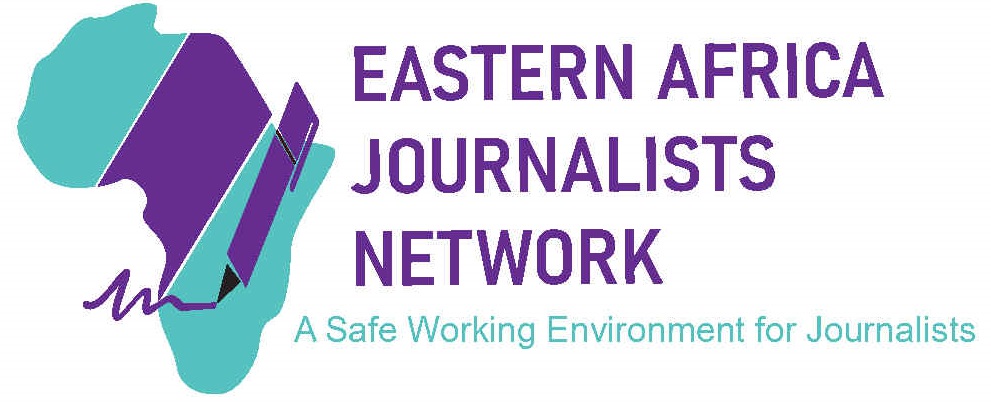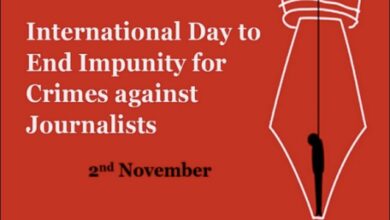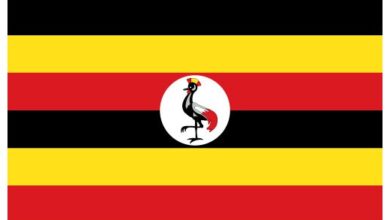Ugandan Government Must Respect Human Rights and Ensure Free and Fair Elections Process
Egregious and widespread electoral violence, intimidation and repressive measures threaten free and fair electoral process in Uganda
Deprecated: preg_split(): Passing null to parameter #3 ($limit) of type int is deprecated in /home/eajournal/public_html/wp-content/themes/jannah/framework/functions/post-functions.php on line 805

Uganda has blocked access to social media and messaging apps ahead of today’s general elections.
As Ugandans go to vote in the general elections today, January 14, 2021, Eastern Africa Journalists Network and 25 other human rights organisations to express deep concerns about the rapid deterioration of human rights situation in the country and supports the submission of this urgent appeal to the respective mandates under the African Commission on Human and Peoples’ Rights and United Nations (UN) to urge the Government of Uganda to adhere to its constitutional, regional and international obligations, particularly during this critical electoral period.
Over the last few months, we have noted an escalation of violations that has created a climate of unprecedented fear and intimidation by State security and other regulators, seemingly intended to silence dissent, undermine political opposition participation, and deprive Ugandans of their enjoyment of fundamental rights; in particular, the right to freedom of expression, association, and peaceful assembly. Security forces have adopted the use of excessive and deadly force to quell public gatherings and intimidate the public, especially human rights defenders, journalists, opposition politicians and their supporters, and vulnerable groups such as women and youth.
Credible human rights organisations and media institutions have documented numerous cases of mass arrests and abductions of civilians, which are becoming more of a daily occurrence. In addition, COVID-19 related prevention measures have been exploited to unduly restrict civil and political rights and other fundamental freedoms. In the months leading to the election, authorities arrested opposition party leaders, journalists, and dispersed opposition campaign rallies with teargas for allegedly violating COVID-19 guidelines.3 On the other hand, authorities in a partisan manner, allowed certain rallies organised by the ruling National Resistance Movement (NRM) to continue unhindered.4
Covering the political opposition has become an unacceptably dangerous job for journalists, who have been assaulted numerous times by security personnel. For example, on December 27 at least three journalists — Daniel Lutaaya, Ashraf Kasirye, and Ali Mivuli– were injured by projectiles fired by police.5 Kasirye remained hospitalized at the time of publication. In early December, police beat at least six journalists who were covering opposition candidate Robert Kyagulanyi in Lira6 and fired a rubber bullet at another journalist in Jinja.7 In a December 27 statement8, police said they would investigate attacks on journalists, a commitment that was deeply undermined on January 8, when the Inspector General of Police, Martin Okoth Ochola, told journalists that police were beating them for their own safety.9
Regulators have sought to further restrict media access and coverage during the electoral period. In December, the Media Council of Uganda issued guidelines, requiring all foreign journalists in Uganda to reapply for accreditation; introducing a more stringent regime for accreditation of journalists seeking entry into Uganda; and barring all local journalists from covering political events without credentials10. The Uganda Communications Commission in December wrote to Google, asking for the take-down of opposition aligned YouTube pages11. On January 12 Reuters12 and AFP13 news agencies reported that the regulator ordered Internet Service Providers to block access to social media platforms. In a speech,14 Uganda’s President Yoweri Museveni claimed the shutdown of social media platforms was retaliatory to an earlier measure by Facebook, which took down government-linked accounts for allegedly manipulating public debate15.
Human rights defenders and non-governmental organisations (NGOs) play an important role in promoting an enabling environment for the respect and protection of human rights. In relation to elections, they support institutional processes in areas such as voter education, independent election monitoring and helping to reduce election-related conflict. Despite this critical role, organisations such as the Uganda National NGO Forum and Uganda Women’s Network (UWONET) that were engaging in election-related activities such as polling have had their bank accounts arbitrarily frozen following allegations of money-laundering.16 Prominent human rights lawyer Nicholas Opiyo along with four others were arrested last month on similar money- laundering allegations17. Another striking example is the suspension of the National Election Watch-Uganda (NEW-U), a loose coalition of largely formal NGOs engaged in election monitoring, by the National Bureau of NGOs, allegedly for non-registration.18
In light of the numerous and widespread violations that have been observed, particularly over the past several weeks, there is a strong justification to be concerned over the fairness and integrity of the upcoming elections.
This appeal calls on the UN and African Commission special procedures to exercise their mandates to urge the government of Uganda to adopt all reasonable safeguards to enable Ugandans to participate in the election free of violence and intimidation, and to abandon all efforts to restrict the media from freely reporting on the electoral process. Ugandan security forces must refrain from the excessive use of force against civilians and refrain from arbitrary arrests and detention as a means to silence persons critical of the State. Anyone arrested must be afforded the full due process of the law, including a prompt, free and fair trial. Perpetrators of election related violations that have occurred in recent months must be held accountable and effective remedies afforded to the victims.
We further call on you to strongly urge the government of Uganda to embrace the fundamental right to political participation and to observe the cardinal principles of transparency, accountability, fairness and non-discrimination in collecting, processing, registering and reporting of the votes. In addition, the Ugandan government must allow independent organisations to freely and safely conduct election monitoring to help safeguard the general election process from electoral misconduct and instill public confidence in the integrity of the process.
Finally, we call on you to remind member States of the African Union and United Nations and other multinational organisations to uphold their treaty obligations and hold Uganda accountable to its own constitution, regional and international obligations, ensuring adherence to the principles of a free and just democratic society.
We thank you for your attention to these pressing issues that carry with them serious implications for the rule of law and respect for fundamental freedoms in Uganda, as well as the East African sub-region more generally, and stand ready to provide any further information.
Sincerely,
- Access Now
- African Centre for Democracy and Human Rights Studies (ACDHRS)
- African Freedom of Expression Exchange (AFEX)
- ARTICLE 19 – Eastern Africa
- Association Nigérienne des Scouts de l’Environnement (ANSEN)
- Association for Human Rights in Ethiopia (AHRE)
- Center for Civil Liberties (Ukraine)
- CIVICUS, the global civil society alliance
- Commonwealth Human Rights Initiative (CHRI)
- Eastern Africa Journalists Network (EAJNet)
- Ethiopian Human Rights Defenders Center (EHRDC)
- MARUAH, Singapore
- Media Foundation for West Africa (MFWA)
- Network of Estonian Non-profit Organizations
- Network of Public Interest Lawyers, Uganda
- Robert F. Kennedy Human Rights
- ROSE (Réseau des Organisations de la Société Civile pour l’Observation et le Suivi des Élections en Guinée), Guinea
- Odhikar, Bangladesh
- Somali Journalists Syndicate (SJS)
- Southern Africa Human Rights Defenders Network
- Spaces for Change, Nigeria
- Uganda National NGO Forum
- Vijana Corps, Uganda
- Womankind Worldwide
- Zambia Council for Social Development (ZCSD)


